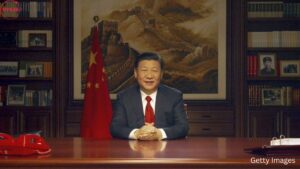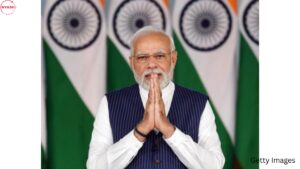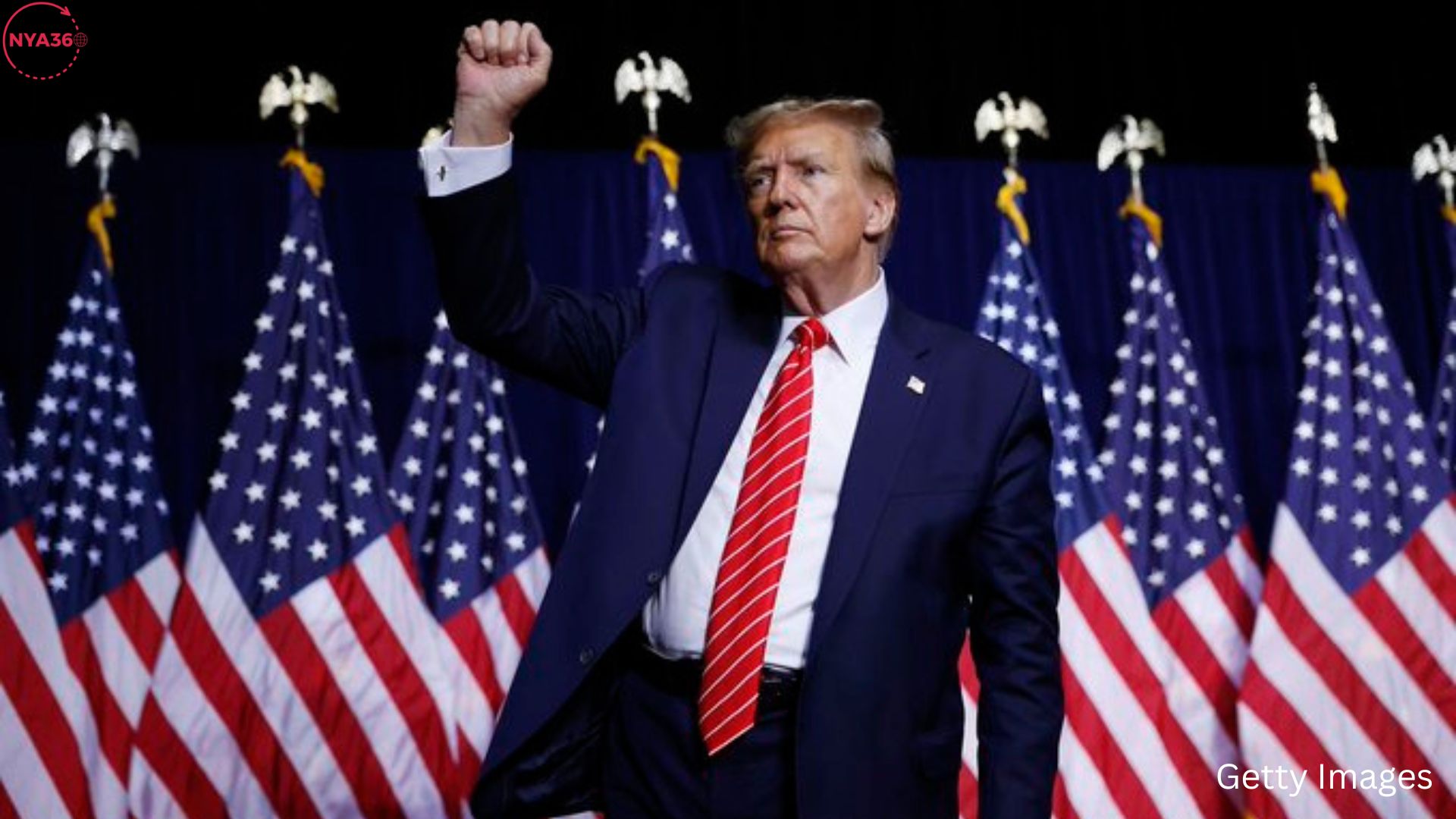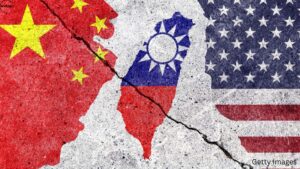Donald Trump’s victory as President of the United States signified a crucial juncture in American and world affairs. His triumph, validated by the Electoral College, resonated globally, eliciting a diverse array of responses from world leaders, financial markets, and diplomatic spheres. China and India, two of the most populous and swiftly developing nations, were among the first to respond internationally, with their interests and global standing rendering their interactions with the United States more consequential.
Chinese officials reiterated their dedication to “peaceful coexistence” with the United States, emphasizing their respect for the democratic decisions of the American populace. Concurrently, India’s Prime Minister Narendra Modi swiftly engaged in a congratulatory telephone dialogue with President-elect Trump, a gesture that highlighted India’s commitment to fostering and enhancing its relationship with the U.S. This article analyzes the ramifications of Trump’s election on U.S.-China and U.S.-India ties, investigating possible alterations in policy, trade, and diplomatic strategy.
China’s Reaction: A Diplomatic Equilibrium
China’s response to Trump’s election was prompt and diplomatic, underscoring its inclination for stable and mutually advantageous relations. A representative of the Chinese government expressed the nation’s admiration for the American people’s decision and its dedication to peaceful coexistence. This remark illustrates China’s strategic approach to its relationship with the United States, balancing rivalry and cooperation in domains such as commerce, technology, and security.

Trump’s campaign discourse against China was confrontational, emphasizing trade imbalances, currency manipulation, and intellectual property infringement. Trump’s emphasis on economic nationalism during his campaign exacerbated the longstanding disputes between the two nations, raising apprehensions regarding possible tariffs and protectionist measures. China, with its economy significantly reliant on exports, stands to suffer considerable losses from a trade war with the U.S., and its calculated response indicated a preference to avert unwarranted conflict.
Economic Relations and Trade Policy
The economic relationship between the U.S. and China ranks among the greatest globally, including billions of dollars in annual exchanges of products and services. Throughout his campaign, Trump condemned what he characterized as inequitable Chinese trade practices, which he contended had led to the decline of American industrial employment. His commitments to diminish trade deficits and restore employment to the U.S. resonated with several supporters but elicited apprehensions in China on a possible pivot towards protectionism.
Conversely, Beijing has been striving to change from an export-oriented economy to a more consumption-driven model, a transition that may diminish its reliance on the American market. A trade war might hinder China’s economic progress, generating instability that may impact both nations. Thus, China’s proclamation of “peaceful coexistence” may be construed as a strategy to avert conflict and pursue compromise about trade matters.

Security Issues: South China Sea and Taiwan
In addition to economic problems, security, and territorial matters also provide hurdles to U.S.-China relations. The South China Sea, a pivotal area for major commerce routes, has been a source of dispute between China and many Southeast Asian countries. China’s extensive territorial assertions in the region have elicited concern in Washington, where policymakers regard freedom of navigation as vital to global commerce and stability.
Trump’s stance on the South China Sea and other critical regions, including Taiwan, was initially uncertain during the early phase of his presidency; nevertheless, he subsequently articulated a desire to enhance America’s involvement in the Indo-Pacific. China has persistently strengthened its military presence in the region, considering it vital to its security objectives. Although both nations stand to benefit from stable relations, these geographical conflicts provide potential flashpoints.
India’s Response: An Optimistic Perspective for Enhanced Relations
In sharp contrast to Beijing’s muted reaction, India’s Prime Minister Narendra Modi warmly welcomed Trump’s election by starting a phone call to congratulate the President-elect. Modi’s prompt reaction highlights the robustness of the U.S.-India partnership, which has significantly expanded under prior administrations. During President Barack Obama’s administration, U.S.-India relations had substantial advancement, especially in defense collaboration, commercial connections, and counterterrorism initiatives.

For India, a robust alliance with the U.S. signifies a potential to augment its regional power, especially as a counterweight to China. India has been apprehensive about China’s expanding economic and military dominance, particularly in light of border conflicts and rivalry for influence in the Indian Ocean region. Trump’s “America First” rhetoric initially cast doubt on the future of U.S.-India relations; nevertheless, the constructive dialogue between Modi and Trump indicated a willingness to further enhance the strategic partnership.
Economic and Commercial Relations
India is among the world’s rapidly expanding economies, with the United States serving as a crucial economic partner. Trump’s campaign emphasis on renegotiating trade agreements to advantage American labor prompted apprehensions among Indian officials on possible trade and outsourcing limitations. The information technology and services sectors in India are substantially reliant on the U.S. market, and any restrictive trade policies may result in considerable economic consequences.
Nonetheless, the prospects for trade coordination remain substantial. India’s enormous consumer market offers prospects for American enterprises, while India’s emergence as a global technology and innovation center corresponds with U.S. interests. By emphasizing reciprocal economic advantages, both nations could endeavor to augment trade and investment exchanges, thereby improving economic collaboration.
Collaboration in Defense and Security
Defense and security have emerged as fundamental components of the U.S.-India relationship, and Trump’s presidency facilitated the potential for enhanced cooperation in these domains. India, confronted with security threats from Pakistan and China, perceives the U.S. as a crucial ally in bolstering its defense capabilities. The two nations have executed multiple agreements to enhance defense collaboration, including the Logistics Exchange Memorandum of Agreement (LEMOA) and the Communications Compatibility and Security Agreement (COMCASA).

For Trump, enhancing relations with India provided a strategy to promote America’s interests in the Indo-Pacific and mitigate China’s influence. Both nations express apprehensions regarding China’s Belt and Road Initiative, which India perceives as a strategy to expand China’s geopolitical influence. Collaborating on security measures, the U.S. and India might enhance regional stability and act as a counterweight to China’s expanding influence.
Consequences for International Diplomacy and Prospective Relations
Trump’s election introduced unpredictability in global diplomacy, as his unconventional foreign policy frequently deviated from established standards. China and India acknowledged the possibility of policy changes under his administration and aimed to create a framework for collaboration that would protect their interests.
U.S.-China Relations: Progressing Towards Strategic Competition
China’s measured response indicated its recognition that U.S.-China ties would probably embody a combination of collaboration and rivalry. Although Trump’s campaign discourse on trade and security elicited apprehensions, China’s leadership has exhibited pragmatism in managing U.S. ties. As both nations vie for global dominance, sustaining transparent communication and pursuing shared interests may avert misunderstandings and possible wars.
U.S.-India Relations: A Strategic Alliance
India’s positive reaction to Trump’s election underscores its intention to enhance strategic relations with the U.S., particularly in domains that correspond with its security and economic objectives. The United States and India are poised to cultivate strong cooperation, grounded in shared democratic ideals and a common objective of combating China’s regional influence. Both nations can cultivate a relationship that advances their long-term strategic objectives by concentrating on defense, trade, and technological collaboration.

Navigating a Transforming Global Environment
Donald Trump’s win indicated a possible transformation of U.S. foreign policy, affecting relations with China, India, and other nations. Although China and India reacted differently, both underscored the need for a stable and cooperative relationship with the United States. China prioritizes conflict avoidance and competition management, but India seeks to utilize the strategic relationship to enhance its regional influence.
The future of U.S. relations with China and India will hinge on a complex interplay of economic, security, and diplomatic elements. Both nations acknowledge the importance of their relations with the U.S. and are expected to pursue constructive engagement, despite the escalating competitiveness of the global scene. For the United States, cultivating stable relations with both China and India will be crucial for preserving its influence in a multipolar world.
Follow us on social media: Instagram, Threads & Twitter X @nya360_ YouTube & Facebook @nya360.





